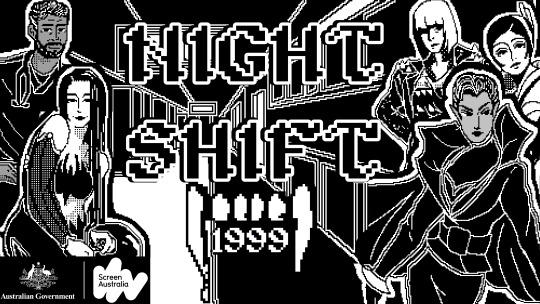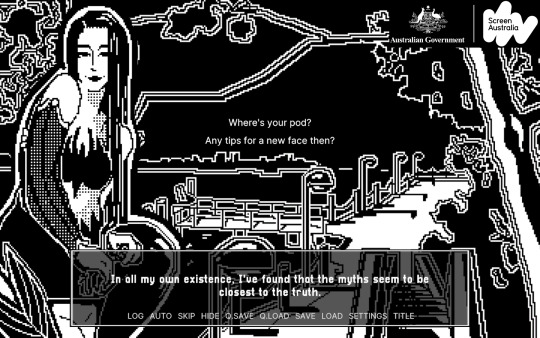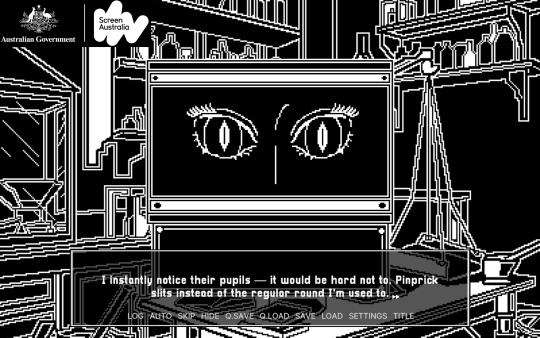they/them | writer & creative | 21 | bi & genderqueer | biracial | tracking: #UserQuaintrelle | 🪷🏳️🌈🏳️⚧️🇮🇳♾️🔮 | commissions: open.
Last active 60 minutes ago
Don't wanna be here? Send us removal request.
Text
@musicboxmemories (affectionately) is this you?

33K notes
·
View notes
Text
rich pathetic/evil blond men make me swoon like yes you go boy go feel that soul crushing guilt i love you
18 notes
·
View notes
Text
i like vampires because i also choose to express my homosexuality by pretending i'm a 19th century aristocrat
534 notes
·
View notes
Text
@marquis-de-sade-official who knew you and Pierre Abelard would be best friends (too pretty for this and convicted of heresy on your peers inability to think for themselves).
i figured tumblr would appreciate this more than pinterest.

pinterest @/alightcaseof_ohno
399 notes
·
View notes
Text
haven't heard from my good friend jonathan harker in a while now :( i'm worried about him
140 notes
·
View notes
Text
"You're going to die on the hill of freedom of expression?"
Yeah, actually I am. Come shoot me.
72 notes
·
View notes
Text
Power, Villains, and Harlots
A show is only as good as its villains, and Harlots is a very, very good show, made even better by the ways the two main villains work as foils for each other. Both Lydia Quigley and Harcourt Fitzwilliam, the Marquess of Blayne are deeply corrupt individuals who maintain their position by corrupting others. At the same time, though, they are different in important ways and most of these differences are gendered.
The most telling aspect of this is their different motivations. Everything Lydia does is part of a continuous process of gaining or maintaining safety, which she believes she will never be able to achieve without help from men. This is not an illusion on her part; at her strongest and smartest she has less power than a weak and gullible man, who commits her to Bedlam with his signature. Every since her birth, the threats Lydia faces have been very real. This does not make her any less a villain; she does the same horrific things to young women that were done to her for the sake of her own security. But however horrific her means are, the motivation itself is not unreasonable. She has no one else to protect her.
Blayne’s motivation is simply power, and that would be almost laughable if it didn’t lead to so much bloodshed. As an aristocratic White man in 18th Century England, he already has all the power there is, but it isn’t enough for him. And the appetite grows with the eating; it’s not enough to rape women with impunity, he wants to kill them too. Then it’s not enough to kill women; he wants to corrupt younger men into treating women as brutally as he does. As much as this is a show about women’s struggles, it does not neglect recognizing than young men are victims of patriarchal violence as well. Still it’s very honest about the numerous advantages men enjoyed over women. The women triumph over Blayne not jut through their own collaboration but because they find a young, mostly uncorrupted young man in Prince Henry to advocate for them. They’re very lucky.
The end of season three treats these villains very differently. Lydia does not face any ultimate, ruinous retribution, but Blayne does, and Lydia could not play a more direct role in that. But stabbing Blayne with Lucy Welles does not give her absolution. She remains feared and untrusted, which is really only fair: a fitting fate for a villain as complex as she is. As much as they are foils, Lydia and Blayne are also very different kinds of villains. There’s no real depth to him; he’s just incredibly scary and easy to hate. Lydia, however, is everything a villain can be: selfish, cruel, abusive, victimized, and abused. And all of it matters; no part of it cancels out the rest.
30 notes
·
View notes
Text
I want to revisit this idea later when I have more time, but for all the women who are described as “ruined” or “fallen,” that’s actually more true of Lord Fallon than anyone.
I’ll explain.
This series is full of women who have been abused by men–far too many to name, more of them have than haven’t–who are not ruined by it. They’re still brilliant, loving, smart, compassionate people. Lord Fallon is abused by Blayne, too; what do you call grooming someone into a murderer if not abuse? The things about his relationship with Lucy that Blayne sneers at give us some insight into what he might have been like without Blayne’s influence. Still an asshole, probably: some of that is just privilege. But he gives her some freedom. He wants her to be happy. She genuinely likes him. Apart from the fact that he’s a murderer of young women–there is that!–it’s a healthier relationship that Charlotte and Howard have in season 1.
The difference is that he allows Blayne to influence him. Blayne is much older than he is, and this is clearly not a new relationship, but Fallon has power and position of his own. If he decided to tell Blayne to go fuck himself, the consequences would be far less than for Lady Isabella, let alone Blayne’s other female victims. He’s ruined, not by anything that was done to him, but by his own choices.
11 notes
·
View notes
Text
11K notes
·
View notes
Text
Just got an ask (which I blocked) which started off on a diatribe about how they don't support AO3 because AO3 ""allows pedophilia"" - and I stopped reading right there.
Saying "AO3 allows pedophilia" is the same thing as saying "AO3 allows murder" or "AO3 allows theft."
AO3 allows *fictional depictions of pedophilia* to be shown in a story.
Just like AO3 allows *fictional depictions* of murder to be shown in a story. Or AO3 allows *fictional depictions* of theft in a story.
292 notes
·
View notes
Text
according to the official extracts, the holmwood foundation's version of jonathan died at age 24 and mina outlived him by over 50 years, meaning that, despite maddie and jeremy's bodily ages, from the harkers' subjective points of view they now have at least a half-century age gap. mid-late 70s dame harker x fresh-out-of-law-school jonno. chat is this hot.
68 notes
·
View notes
Text
You know what makes me fucking sad? That I, as a Non-Jew, have to be explicit about my stance on antisemitism, while it should be THE NORM.
Y'all wanna "punch nazis" but can't even protect Jews. What's your point.
"Oh but Nazis hurt all of us-" I am going to eat your kneecaps.
Read a history book, us germans learn this shit at age 12. Spitting in your face rn.
720 notes
·
View notes
Text





Do you like vampires? Do you like the 90s? Do you like vampires working menial jobs in the 90s? Then you'll want to play the demo for my 1-bit visual novel, Night Shift: 1999 !
Set in Kings Cross, Sydney during the end of the millennium, play as a vampire from the 1600s trying to make ends meet as she works the night shift at the local hospital. Talk to a variety of colourful characters — human, undead, and everything in-between — and reveal the secrets this city has to offer… willingly or by force. Be greeted with dream sequences that unveil your murky past, all determined by the choices you make.
With five introductory stories available in the demo, it takes around 2-4 hours to complete. It's available to play through itch.io, with a steam store page coming soon.
Sign up to the mailing list to be notified of future development!
1K notes
·
View notes
Text
This is a bit of an unhinged rambling, but I’ve been thinking.
I find it interesting that a common complaint of TVC is that, as the books went on, Louis was essentially forgotten and Lestat functionally became the new main character seemingly out of nowhere considering his (still substantial) presence in only the beginning half of the first book.
The interesting thing is though, at least to me, is that this kinda makes sense if you know anything at all about Anne Rice herself. I think it’s pretty common knowledge that IWTV was, in part, a response and coping mechanism for the death of Michelle Rice, Anne’s daughter. As she was in a deeply depressive state, Anne connected with Louis as the protagonist, imbuing his character with her sorrow and misery. At the time, it was a way to work through her grief, but, as she healed and the years passed, Anne began to stop relating to Louis as a character, even beginning to view him as a reminder of the dark place she was in during his conception.
Anne had initially said that Lestat had been inspired by her husband, Stan Rice; though some time between IWTV’s release (1976) and TVL’s release (1985) almost a full decade later, Lestat had become more relatable to Anne, and sort of aspirational in a way.
Anne had stated that she felt like Lestat was a lot like her, but that, he could be uninhibited, and do things Anne herself couldn’t even dream of doing; and that, no matter what horrors or sadness Lestat faced, he could always bounce back and be jovial in the face of tragedy given enough time.
In this way, you could almost make the argument that Anne is a bit like Gabrielle, in the way that she created Lestat, and lives vicariously through him, as he is a spirited (and later immortal) young man who can do things both women can’t. Of course this idea is dead on arrival considering Anne reportedly didn’t like Gabrielle (ignoring the fact that Gabrielle’s gender things are a very obvious parallel to Anne’s gender things, but that’s a whole other post). Yet, I still think Gabrielle’s words to Lestat encapsulate how Anne herself seemed to feel about him.
“You are the man in me”, Gabrielle tells Lestat, and it seems like Anne felt similarly about the character.
Many fans of TVC tend to also criticize the later books, which DID admittedly go off the rails a bit. It just so happens however, that these specific books —from what I’ve seen, the least liked tend to be Memnoch, Merrick, and Canticle— roughly line up with tumultuous periods of Anne’s own life. The death of Stan Rice, her return to faith, her re-denouncement of faith; all affected her writing, and how she wrote Lestat.
I think it’s fair to say that a good part of Lestat’s notoriously histrionic personality is due to real life events that deeply affected Rice herself.
In a way, I think it’s interesting that (to me it seems), Anne would drag Lestat, the character she loved and related to and wished to be; with her through her many ups and downs, to inspire herself, because Lestat would always be able to rise from his lowest lows better than ever, even if she might have felt she couldn’t.
43 notes
·
View notes
Text
"just write a little every day" ok but what if i write nothing for 3 weeks and then suddenly type like i’m being hunted by god
59K notes
·
View notes










